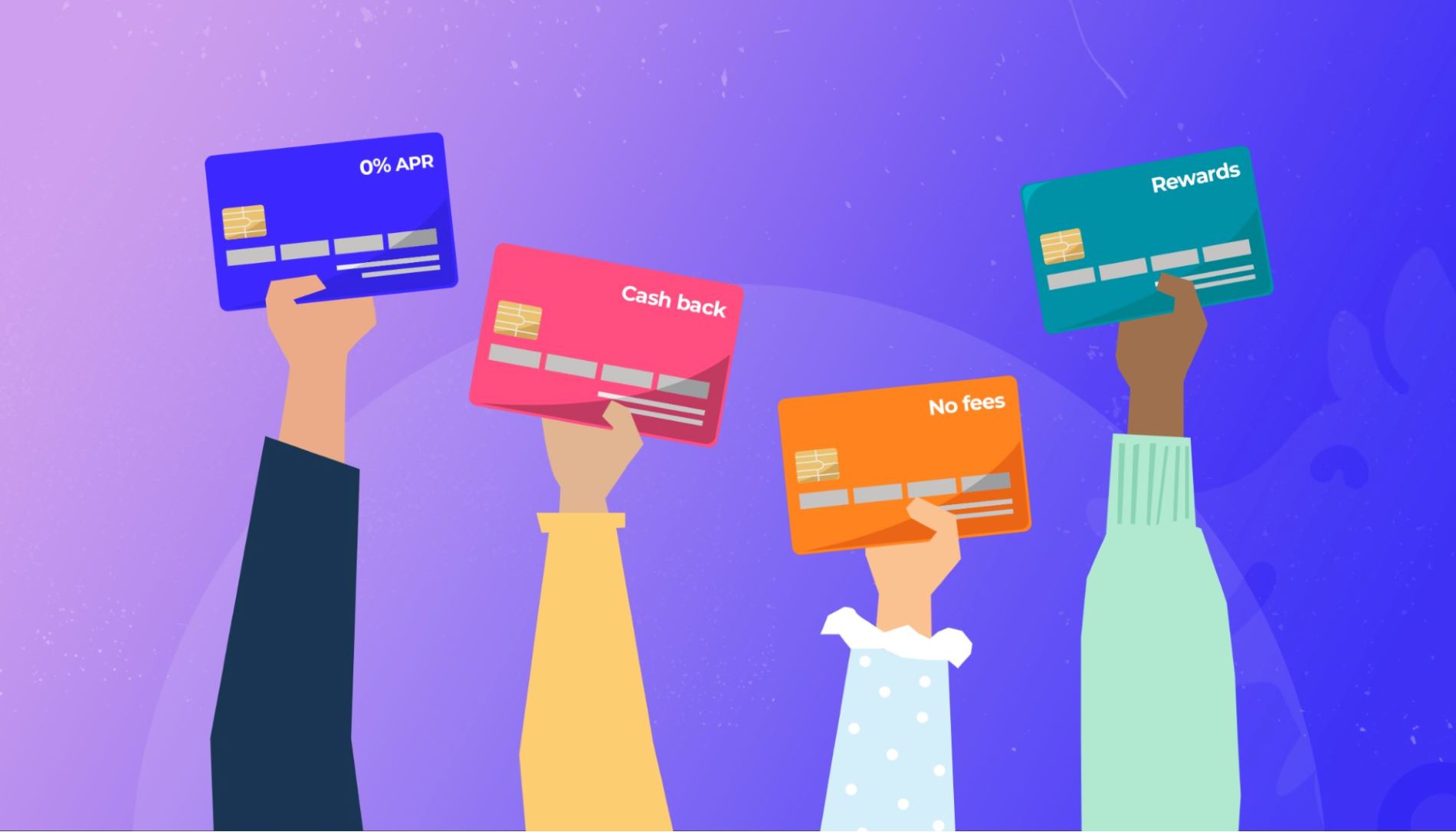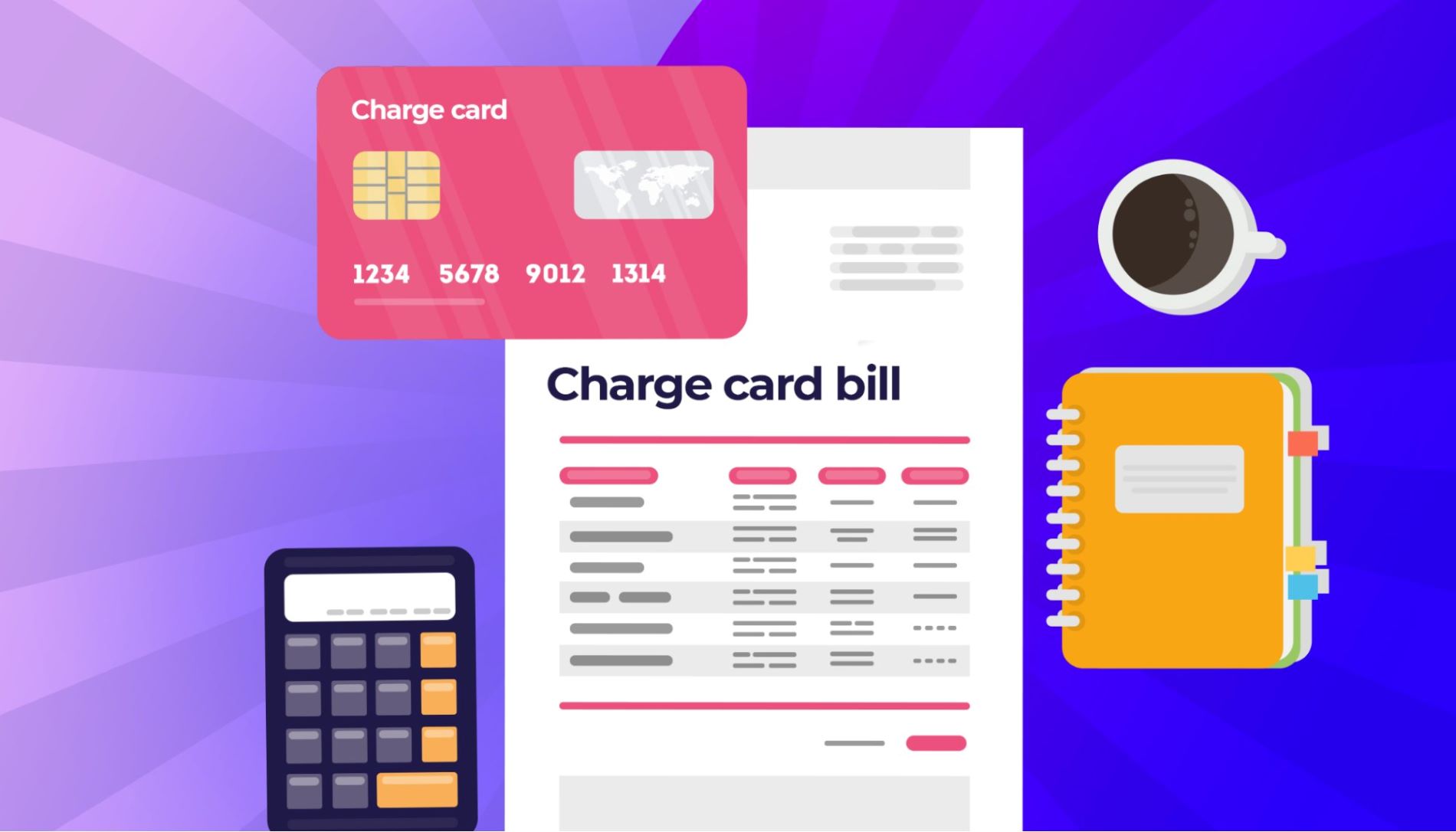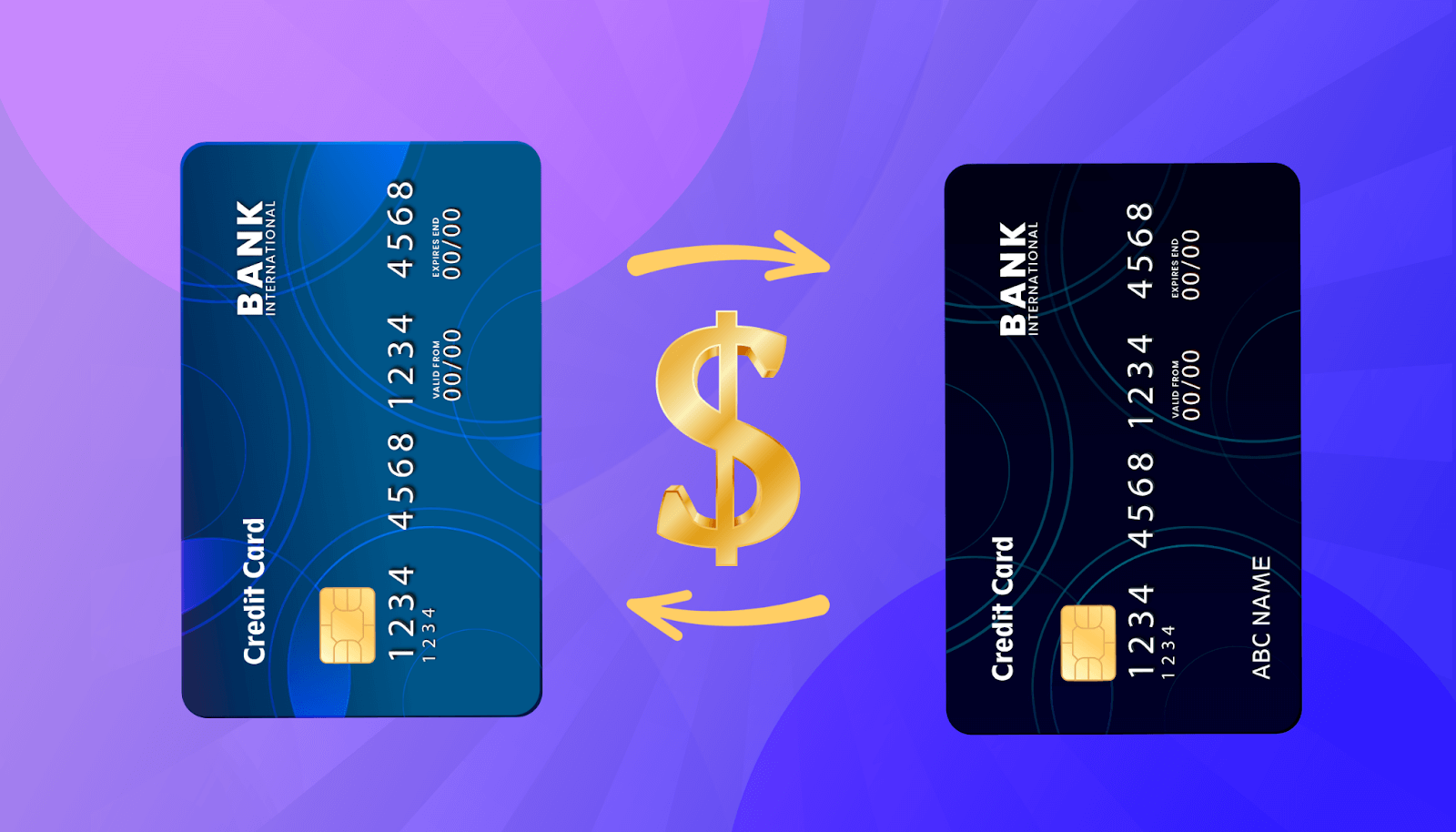
Kudos has partnered with CardRatings and Red Ventures for our coverage of credit card products. Kudos, CardRatings, and Red Ventures may receive a commission from card issuers. Kudos may receive commission from card issuers. Some of the card offers that appear on Kudos are from advertisers and may impact how and where card products appear on the site. Kudos tries to include as many card companies and offers as we are aware of, including offers from issuers that don't pay us, but we may not cover all card companies or all available card offers. You don't have to use our links, but we're grateful when you do!
Charge Card vs. Credit Card
July 1, 2025


When you’re considering credit options, you’ll be faced with an incredibly wide range of card types. Different credit card issuers offer products that have been designed with specific types of borrowers, spenders, or transactions in mind — so it can be difficult to know where to start.
One option you’ll run into is the charge card. There aren’t a huge number of card issuers that offer charge cards, but when you find a charge card, it can offer you many unique benefits that a standard credit card can’t. It’s just important to remember that charge cards aren’t right for everybody.
This guide explains how a credit card works, how a charge card works, and when it makes more sense to get a credit card vs. a charge card.
Is a Charge Card the Same as a Credit Card?
Before we dive into whether a charge card is right for you, let’s take a step back and talk about how credit and charge cards work.
First, we’ll talk about standard credit cards and when they’re going to be the best fit for you.
How Does a Credit Card Work?
A credit card is a payment tool that gives you a line of credit to make purchases, cash advances, or balance transfers and then repay your credit card issuer later for those transactions.
Generally speaking, you can expect to repay any cash borrowed plus interest — which is effectively the cost of borrowing money. That being said, you’ll see quite a few credit card companies advertising 0% interest credit cards that give you a promotional period of several months to make purchases without having to pay interest on your balance.
When you start using a new credit card, you'll need to make sure that you’re repaying a minimum payment every month. Those payments will have to coincide with your monthly credit card statements, and there'll be a due date on your balance that you’ll have to hit. This minimum payment requirement will apply whether you’re paying interest on your transactions or not.

There are a number of different types of credit cards, including:
- Secured credit cards (for those with poor credit)
- Unsecured credit cards
- Rewards credit cards
- Cash back credit cards
- Balance transfer credit cards
- Travel credit cards
How Does a Charge Card Work?
Now that we’ve covered standard credit cards let’s look at charge cards.
A charge card is another type of payment card that you can use to make purchases. But unlike standard credit cards, charge cards don’t require you to repay any interest. That’s because charge cards don’t let you carry a balance, so you have to repay your statement balance in full at the end of each month (or statement period).
Charge cards aren’t just an attractive option because they don’t charge you interest fees. Charge cards also normally have a higher spending limit than standard credit cards, and they can carry big rewards benefits, too.
That being said, your charge card issuer may still limit how much you can spend using your charge card. That limit will be based on a number of factors like your payment history, credit score, outstanding debts, income, and other risk factors your card issuer picks up when assessing your credit limit.

If charge cards sound like a good fit for you, it’s important to note that not every credit card issuer offers a charge card option. Charge cards also usually have higher annual fees than unsecured credit cards, so that’s a consideration you need to bear in mind.
What’s the Difference Between a Charge Card and a Credit Card?
We’ve already mentioned a couple of fundamental differences between charge cards and credit cards, but let’s drill into this a little bit deeper.
First and foremost, charge cards normally have a higher (or no) preset spending limit. That can be a big advantage if you need to make a big one-off purchase. After all, if you make a huge purchase on a standard credit card and it brings you too close to your credit limit, it could end up hurting your credit score.
Next, there are late fees.
If you’re unable to repay the full balance of your charge card at the end of a statement period, your card issuer will hit you with a big late fee. That fee will probably be a lot higher than the interest rate you’d be paying for a normal credit card — and any payments you miss on either card type will be reported to the big credit bureaus.
Charge cards need to be paid in full each month. This limits the ways in which you can use a charge card because you can’t carry a balance. If you try to carry a balance on a charge card, you’ll get hit with a penalty fee.
On the flip side, you’re able to carry a balance over to another statement period with a standard credit card. This offers you more flexibility if you’re unable to pay your bill in full — removing a bit of pressure.
It’s also worth noting that charge cards don’t let you make balance transfers, and you won’t find any charge cards with attractive 0% APR promotions (because charge cards don’t charge interest anyway).
Finally, there’s a matter of eligibility. Because charge cards offer higher limits with zero interest, issuers require cardholders to have good or excellent credit. Meanwhile, many credit cards will approve you for an account even if your credit is fair or poor.
Is It Better To Have a Charge Card or a Credit Card?
Now that we’ve covered the basic differences between a charge card and a credit card let’s explore when you should consider a charge card vs. a credit card.
When is it better to have a charge card?
A charge card could be worth considering if you don’t usually carry a balance (and you don’t mind paying an annual fee).
A charge card is also ideal if you need to make a large one-off purchase that you’ll be able to pay off by the end of the month. Although there are plenty of credit cards with high limits, charge cards tend to have way higher limits (and, in some cases, no preset spending limit).

Lots of charge cards offer perks and reward programs, too. You’ll find charge cards with discounted car breakdown insurance, travel cover, concierge services, and airport lounges. Although there are plenty of rewards credit cards on the market, charge cards do tend to give you an even bigger rewards boost — so charge cards can be a good idea if you really want to take advantage of extra perks.
Again, it’s important to remember that you can only get a charge card if you have good credit.
When is it better to have a credit card?
If you’re unsure whether you can pay off your credit card balance every single month, you should get a credit card instead of a charge card. Credit cards let you carry a balance, so you’re not under a lot of pressure to clear your balance every month.
As a result, the best cards for young adults are normally standard credit cards. That’s because the ability to carry a balance offers you flexibility if you’re not earning a lot of money. A lot of credit cards will even let you transfer a balance so that you can consolidate your debts and make life easier.

With a lot of standard credit cards, you can get long-term 0% APR promotional rates — in some cases, up to 12 months or more. That means you can spread the cost of big expenses over a number of months without having to pay any interest.
Charge cards don’t charge interest, sure. But charge cards will land you with big fees if you fail to repay your balance within your statement period. That means zero interest but also zero flexibility.
Next, there are fees to think about.
Credit cards tend to have lower fees. In fact, you’ll find quite a few credit cards with no annual fees at all — meanwhile, charge cards tend to have bigger annual fees and large late fees. If you’re looking for a credit option without the need to pay big fees, a credit card is your best bet.
Finally, there’s eligibility to consider.
If you have poor or fair credit, you should consider applying for a credit card rather than a charge card. Charge cards require good or excellent credit, so if your FICO score is on the low end of the spectrum, you’re way more likely to get approved for a credit card.
Conclusion
At the end of the day, charge cards are a good option if you have a great credit score, are looking for a high credit limit, and are responsible enough with your finances to make sure you can repay your balance at the end of each month.
Meanwhile, credit cards are better if you want to carry a balance, need to spread the cost of a big expense, or have a lower credit score.
Want to make sure you’re always using the best credit card and minimizing costs? Kudos sorts through data from over 3000 cards and millions of online merchants so that our assistant can scan your wallet when you check out online to tell you how you should pay and what rewards and benefits you'll get on that purchase.
Unlock your extra benefits when you become a Kudos member

Turn your online shopping into even more rewards

Join over 400,000 members simplifying their finances

Editorial Disclosure: Opinions expressed here are those of Kudos alone, not those of any bank, credit card issuer, hotel, airline, or other entity. This content has not been reviewed, approved or otherwise endorsed by any of the entities included within the post.



































.webp)







